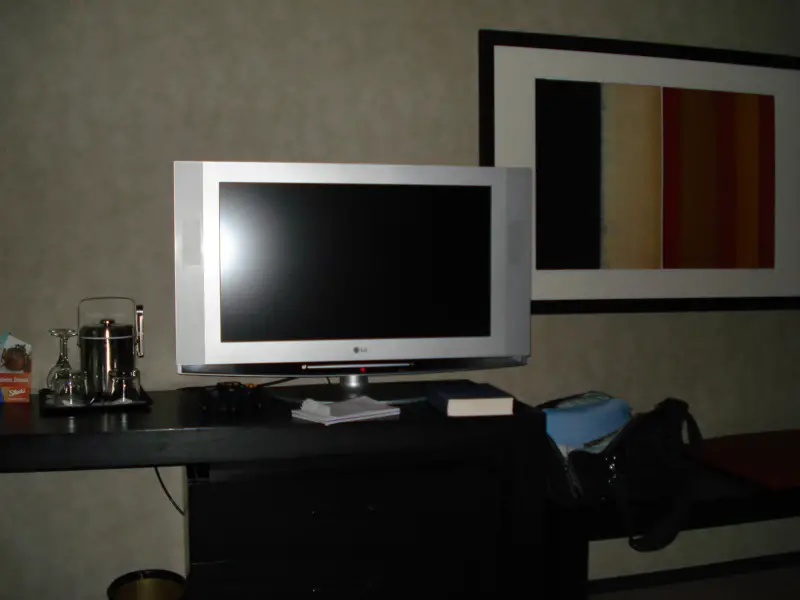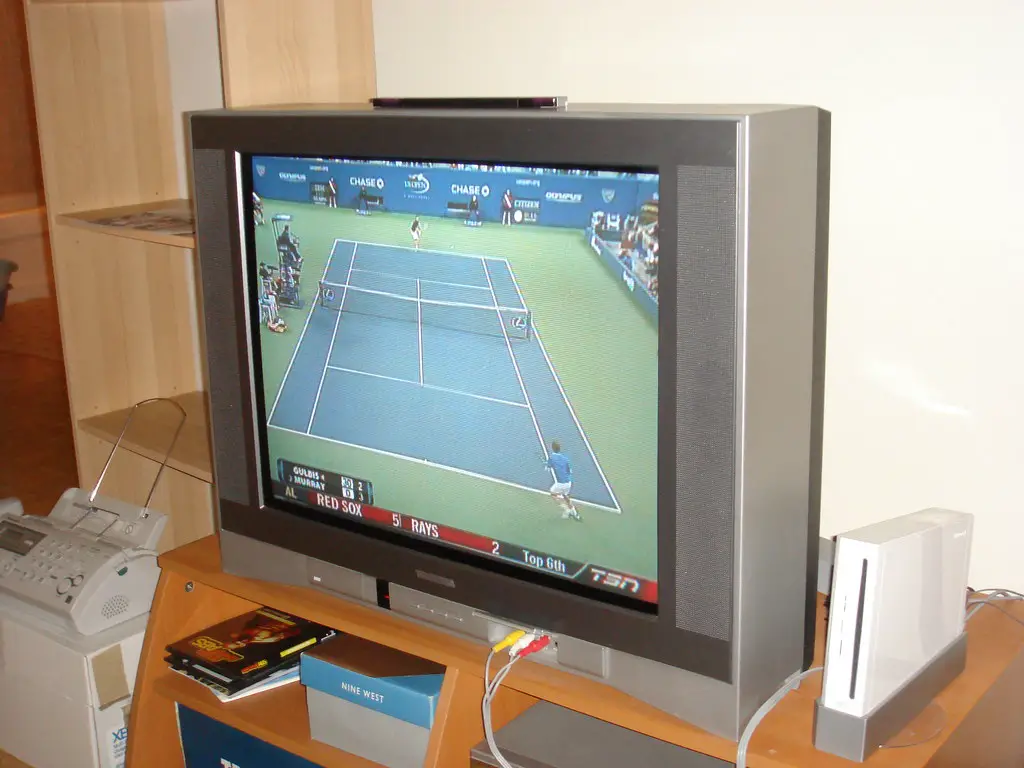With the rapid advancement of technology, flat-screen TVs have become a common household accessory. Unfortunately, disposing of them can be quite tricky. Many of us have been through the same dilemma – how do we get rid of our beloved TV sets without causing any damage to the environment? Disposing of a flat-screen TV may seem intimidating, but it doesn’t have to be.
That’s why we’ve put together this guide with all the information you need to know about how to get rid of a flat-screen TV. From recycling to donation, this guide will walk you through the different ways to dispose of your flat-screen TV in a safe, responsible manner. So, let’s get to it!
How To Dispose Of A Flat Screen TV?

Flat-screen TVs have become increasingly popular in recent years, and for good reason. Not only do they provide an improved viewing experience, but they also tend to take up less space in the living room. Unfortunately, as technology advances and new TVs are released, older models become obsolete and eventually need to be disposed of.
Every year, about 25 million televisions become obsolete. A staggering 68% of Americans have unwanted televisions or computers in their homes, which highlights the importance of properly disposing of flat-screen TVs.
When it comes to disposing of a flat-screen TV, you want to make sure you do it in a way that’s safe and responsible. Here are a few ways to do that.
1. Donate if it working:
Donating a flat-screen TV can be an excellent way to help others, while also getting rid of an item that may otherwise be thrown away. Before donating a TV, make sure it is in working condition.
If your TV is still in good working order, then it can make a great donation to a local charity or organization. Many charities accept donations of flat-screen TVs, as they can be used for a variety of purposes.
For example, TVs can be used in classrooms, shelters, and community centers, allowing people to stay informed and entertained. Furthermore, donating a flat-screen TV is a great way to help those in need, as well as helping to reduce the amount of electronic waste in our landfills.
You can check donation opportunities online too.
2. Sell it if working:
If you are looking to get rid of it quickly and efficiently, you should consider selling it. Selling the TV domestically is a fantastic way to put some money back in your pocket and make sure that it finds a good home.
If you need to sell the TV quickly and don’t have time to try to find a buyer near you, then you can also sell it online. If you’d prefer to try and sell the TV online, there are a variety of different platforms which you can use. The most popular ones are eBay and Craiglist, but you could also try selling them through Facebook Marketplace or Gumtree. These sites also allow you to list items for free and you can also specify a price that you are willing to accept for your TV.
When selling your flat-screen TV, it’s important to make sure that you include all the necessary information such as the make and model, size, and any accessories that come with the TV. You should also include photos of the item and clearly state any defects or damages that the TV may have.
3. Call the recycling company:
One of the best ways to dispose of a flat-screen TV is to call a local recycling company. Doing so ensures that the TV is disposed of properly and safely. The recycling company will be able safely to dismantle the TV and dispose of the parts in an environmentally friendly manner. In most cases, the company will have a designated drop-off location or they may be able to pick the TV up directly from your home.
It is a good idea to check their website or call and ask any questions you may have. Some companies may not accept TVs due to hazardous materials, such as lead and mercury, that can be found in the TV. Additionally, you may need to pay a fee for proper disposal.
Once you have contacted the recycling company, be sure to provide them with the make and model of your TV. Doing so will give them a better idea of how to safely disassemble the TV and provide you with an accurate estimate of any disposal fees. You can see the e-cycling centers online also.
4. Return it back to a manufacturing company:
You can also return it to the manufacturer for recycling or refurbishment. Many companies offer this service as part of their sustainability initiatives.
To find out if your TV qualifies for this service, you should contact the manufacturer. They will likely require you to provide proof of purchase and your TV’s serial number.
Once the TV is returned, the manufacturer will properly dispose of it or refurbish it for reuse. This is a wonderful option for reducing waste and helping the environment.
5. Call the junk removal company:
Calling a junk removal company is your last and most disliked option. If you are not able to find any of the above ways, you may need to call a junk removal company. The company will come to your home and pick up the TV, ensuring it’s properly recycled or disposed of.
Before you call, be sure to check the laws in your area regarding the proper disposal of electronics like TVs. Ensure that your old TV is disposed of or recycled responsibly. You can see different state electronics disposal laws in the US here.

FAQs
Can you recycle flat-screen TV?
Yes, flat-screen TVs can be recycled. Many electronics stores offer recycling services for old TVs and other electronics. The recycling process for flat-screen TVs involves breaking down the components of the TV into recyclable materials, such as metal, plastic, and glass. These materials can then be reused to create new products or recycled into other forms.
Can you throw away flat-screen TVs?
No, flat-screen TVs should not be thrown away with the trash. These TVs contain hazardous materials like lead, mercury, and other poisonous chemicals, which can be damaging to the environment. In order to dispose of old flat-screen TVs safely, take them to a certified electronics recycling center, where the hazardous materials can be safely disposed of.
Are broken TVs worth anything?
Yes, broken TVs are worth something. Depending on the condition and type of TV, they can be sold for parts or recycled for scrap metal. Some people may also be willing to buy a broken TV in order to repair it themselves. It is best to research the value of a broken TV before attempting to sell it, as prices can vary significantly.
What do I do with an old flat-screen TV?
If you have an old flat-screen TV, there are a few options you can consider. You could recycle it, give it away, or even sell it. If the television remains in good condition, you could try to sell it online or in local classifieds. If you decide to recycle it, contact your local electronics recycling center to see if they accept flat-screen TVs. You could also donate it to a thrift store, Goodwill, or a charity organization.
What happens if you put a TV in a dumpster?
When a TV is thrown away in a dumpster, it is likely to end up in a landfill and contribute to the production of hazardous materials. This is because TVs and other electronics contain substances like lead, mercury, and cadmium, which are harmful to the environment when not disposed of properly. If burned or cremated illegally, these materials can pollute the air, leading to health risks for nearby residents.
Conclusion
Proper disposal of flat-screen TVs is extremely important for protecting the environment and avoiding potential health risks. Flat-screen TVs contain many chemicals and materials that can be hazardous if not handled properly. If you want to properly get rid of your flat-screen TV, you should recycle it. Most electronics stores have a recycling program and will accept old TVs for recycling.
If you cannot locate an appropriate disposal center, consider donating your old television to a charitable organization or school, or contact your local electronics retailer for recycling options. By taking the necessary steps to responsibly dispose TVs, you can help to ensure that the environment is protected.
My name is Ella Vicedomine and I’m the founder of this blog. The aim is to start this informational blog to guide people on how to dispose of waste things around in the house but in the right way.

